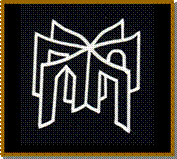Dificultades de la traducción jurídica y jurada / Difficulties in Sworn and Legal Translation.
Keywords:
traducción jurada, lingüística jurídica, comunicación, pragmática intercultural / legal translation, judicial linguistics, communication, intercultural pragmatics.Abstract
Resumen:
Este artículo analiza algunas dificultades que conlleva la traducción jurada inglés-español. Se indaga en el contexto legal existente en España en torno a la figura profesional del traductor jurado. El análisis está enfocado a ilustrar ciertos problemas inherentes a toda traducción jurada, de las que se ofrecen algunos consejos de buenas prácticas. Al igual que en la traducción de los otros ámbitos, en contextos legales descifrar correctamente la verdadera intención del emisor constituye una de las mayores dificultades. La complejidad suele aumentar con la longitud de las oraciones y los párrafos. A esto se le suma el necesario dominio del lenguaje especializado.
Abstract:
This paper analyses some of the difficulties involved in English-Spanish legal translation and describes the legal context of the sworn translators in Spain. The analysis focuses on a number of challenges inherent to all legal translations, and offers advice for good practice. In legal translation contexts –as in translation of any other field– correctly deciphering the real intention of the author is one of the greatest challenges; complexity particularly increases with the length of sentences and paragraphs, not to mention the necessary command of the specialized language.
References
Alcaraz, E.; Hughes, B. Diccionario de términos jurídicos: inglés, español/Spanish-English, Ariel, Barcelona, 1993.
Altay, A. “Difficulties encountered in the translation of legal texts: The case of Turkey”, Translation Journal, 6, 4, 2002.
http://www.bokorlang.com/journal/22egal.htm (fecha de consulta: 1 de mayo 2013).
Ardilla Cordero, A. “Análisis semiótico-semántico del discurso en la traducción”, en La traducción: Metodología, historia, literatura: Ámbito hispanofrancés. Actas del III Coloquio de la Asociación de Profesores de Francés de la Universidad Española (APFFUE), F. Lafarga Maduell et alii
(Coords.), PPU, Barcelona, 1995, págs. 423-431.
Argüeso González, A. “Traducción y terminología: Complementariedad indispensable en la versión del lenguaje jurídico”, en V Encuentros Complutenses en torno a la Traducción, R. Martín-Gaitero (Ed.), Editorial Complutense, Madrid, 1995, págs. 473-481.
Bahá’u’lláh. Tablets of Bahá’u’lláh, Bahá’í World Centre, Haifa, 1978.
Baigorri, J.; Cambell, H. (Eds.). Reflexiones sobre traducción jurídica, Comares, Granada, 2009.
Bodoutchian, V. Diccionario jurídico-empresarial español-inglés/inglés-español, Fundación Confemetal, Madrid, 2000.
Borja, A. Estudio descriptivo de la traducción jurídica. Un enfoque discursivo, Editorial UAB, Barcelona, 2000.
Burukina, O. “Legal language: A realm of contradictions”, Contemporary Readings in Law and Social Justice, 2, 2012, págs. 708-723.
Clavero, B. “Imperio de la ley y rule of land: Léxico jurídico y tópica constitucional”, Cuaderni Fiorentini per la Historia del Pensiero Juridico Moderno, 25, 1996, págs. 285-344.
Daynes, B. “The court interpreter: Appointment, rights and restrictions, qualifications, salaries”, Judicature, 51, 1967, págs. 135-138.
El-Madkouri, M. “Lengua oral y lengua escrita en la traducción e interpretación en los servicios públicos”, Tonos Digital, 15, 2008, págs. 1-20.
Epstein, M. “The role of the humanities in global culture: Questions and hypotheses”, Rhizomes, 2, 2001
http://www.rhizomes.net/issue2/epstein.html (fecha de consulta: 27 de mayo 2013).
Garrido Nombela, R. “Sugerencias para la traducción de textos jurídicos
en inglés”, T&T, 3, 1991, págs. 255-267.
Giambruno, C. Language Mediation in the Judicial System: The role of the Court Interpreter. Tesis Doctoral, Departamento de Filología Inglesa, Universidad de Alicante, 1997.
Herrero, B. “La interpretación en los juzgados”, en V Encuentros Complutenses en torno a la Traducción, R. Martín-Gaitero (Ed.), Editorial Complutense, Madrid, 1995, págs. 687-692.
International Association of Forensic Linguistics. http://www.iafl.org/ (fecha de consulta: 28 de abril 2013).
Lassen, I. Accessibility and Acceptability in Technical Manuals. A Survey of Style and Grammatical Metaphor, John Benjamins Publishing Company, Philadelphia, 2003.
Macy, J. “Annotation - Use of interpreter in trial”, American Law Review, 172, 1947, págs. 923-952.
Mayne, R. The Principles of English/Zulu Court Interpretation, Shuter and Shooter, Pietermaritzburg, 1957.
Ministerio de Empleo y Seguridad Social (anteriormente de Trabajo e Inmigración). http://www.mtin.es/ (fecha de consulta: 24 de mayo 2013).
Moreno-Millán et alii. “Economía y equidad en urgencias y emergencias”, Anales del Sistema Sanitario de Navarra, 33, 2010.
http://dx.doi.org/10.4321/S1137-66272010000200004 (fecha de consulta: 27 de mayo 2013).
Morris, B. “The sixth amendment's right of confrontation and the non-English speaking accused”, Florida Bar Journal, 41, 7, 1967, págs. 475-482.
Muñiz Castro, E. G. Diccionario terminológico de economía, comercio y derecho: inglés-español, español-inglés, Fontenebro, Madrid, 1990.
Orwell, G. “Politics and the English Language”, Horizon, 13, 76, 1946/1974, págs. 252-265.
Painter, J. M. P. “Legal Writing 201: 30 Tips to Improve Readability in Briefs and Legal Documents Or, How to Write for Judges, Not Like Judges”, Mont. Law, 6-7, 2006.
Perdu, N. La relevancia de la pragmática en la traducción de textos multi-culturales, Editorial UAL, Almería, 2004.
Ridao, S. “La figura del intérprete traductor en los juicios con testigos extranjeros. Una aproximación pragmalingüística”, en Discurso y oralidad, L. Cortés et alii (Coords.), Arco/Libros, Madrid, 2007, págs. 861-871.
Ridao, S. Análisis pragmalingüístico de resoluciones de conflictos: Las mediaciones laborales. Propuestas de investigación, Editorial UAL, Almería, 2008.
Sánchez Montero, M. Aproximación al lenguaje jurídico: Una sentencia española de Derecho Laboral y su traducibilidad al italiano, CLEUP, Padova, 1996.
Thetela, P. “Discourse, culture and the law: The analysis of crosstalk in the Southern African bilingual courtroom”, AILA Review, 16, 2003, págs. 78-88.
Tiersma, P. M. Legal language, University of Chicago Press, Chicago, 1999.
U.S. Securities and Exchange Commission. Plain English Handbook,
Office of Investor Education and Assistance, Washington, 1998.
Weihofen, H. Legal Writing Style, West Publishing, Minnesota, 1980.
Wurm, S. “Aboriginal languages and the law”, University of West Australia Law Review, 6, 1963, págs. 1-6.
Downloads
Published
Issue
Section
License

Tejuelo is published with license Creative Commons Reconocimiento-NoComercial-SinObraDerivada 3.0 España.


.jpg)



